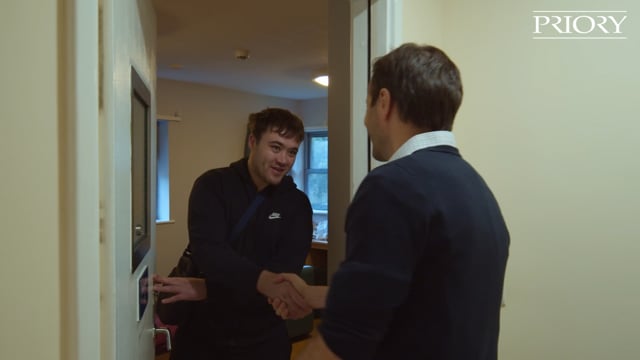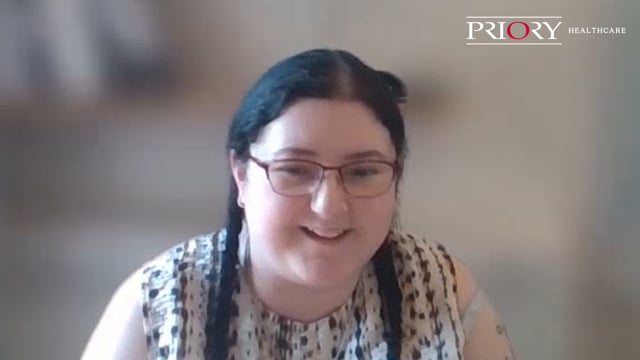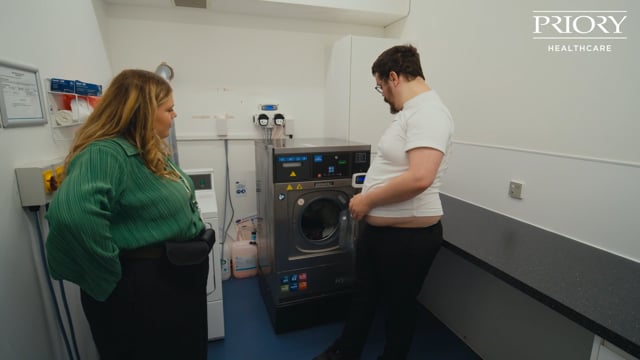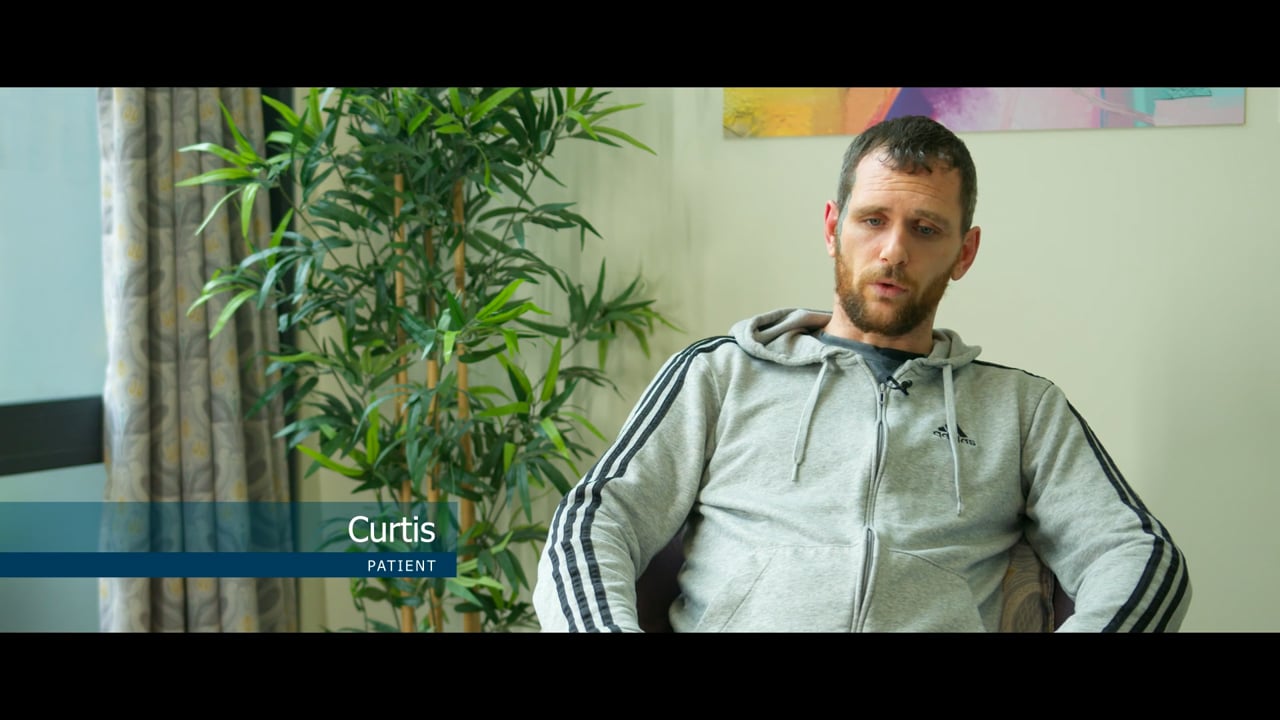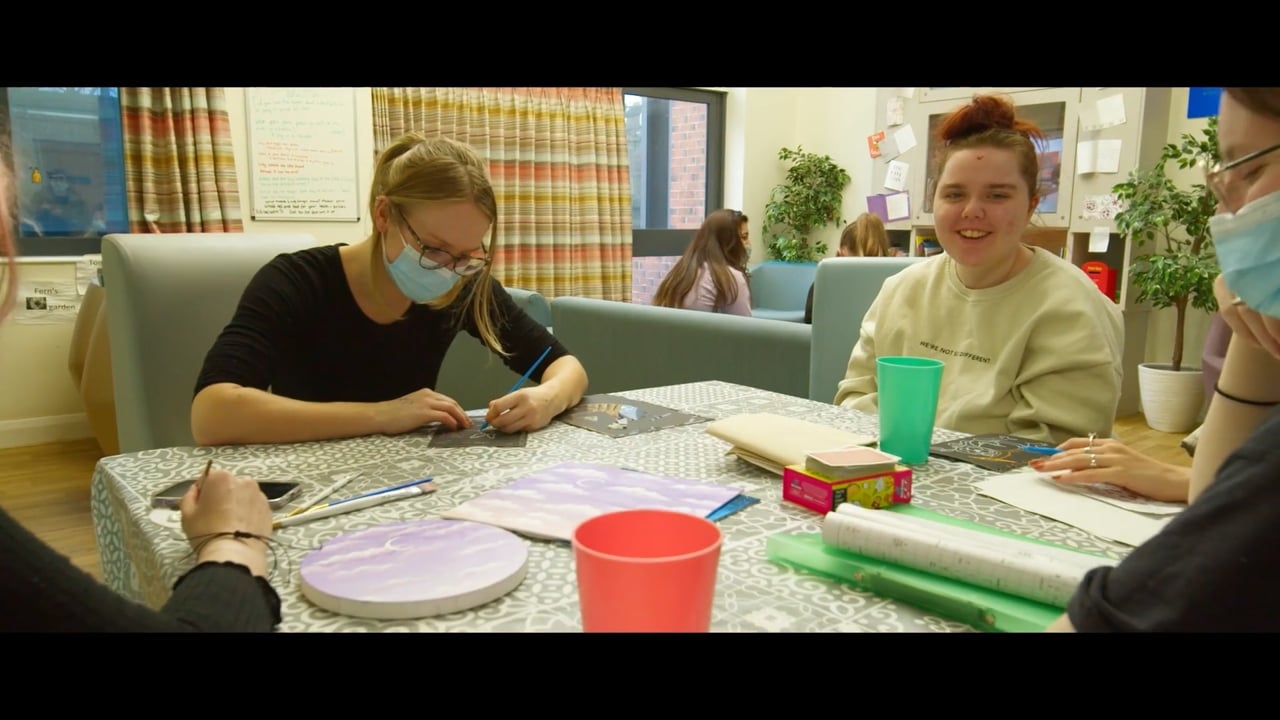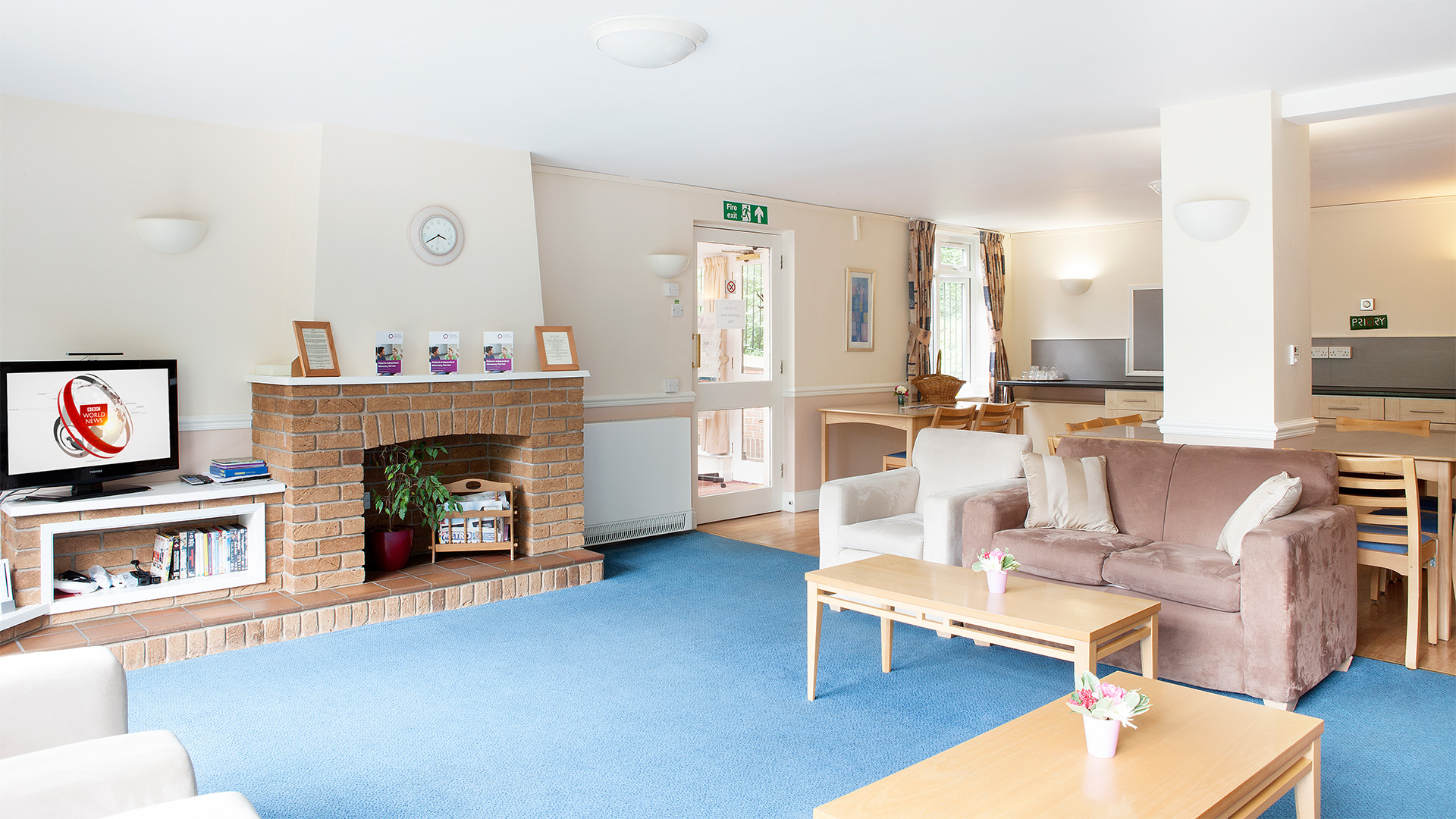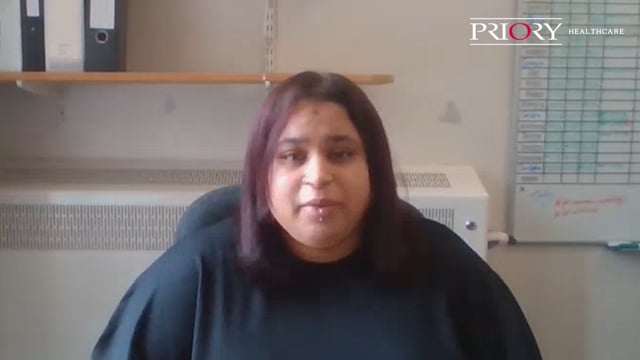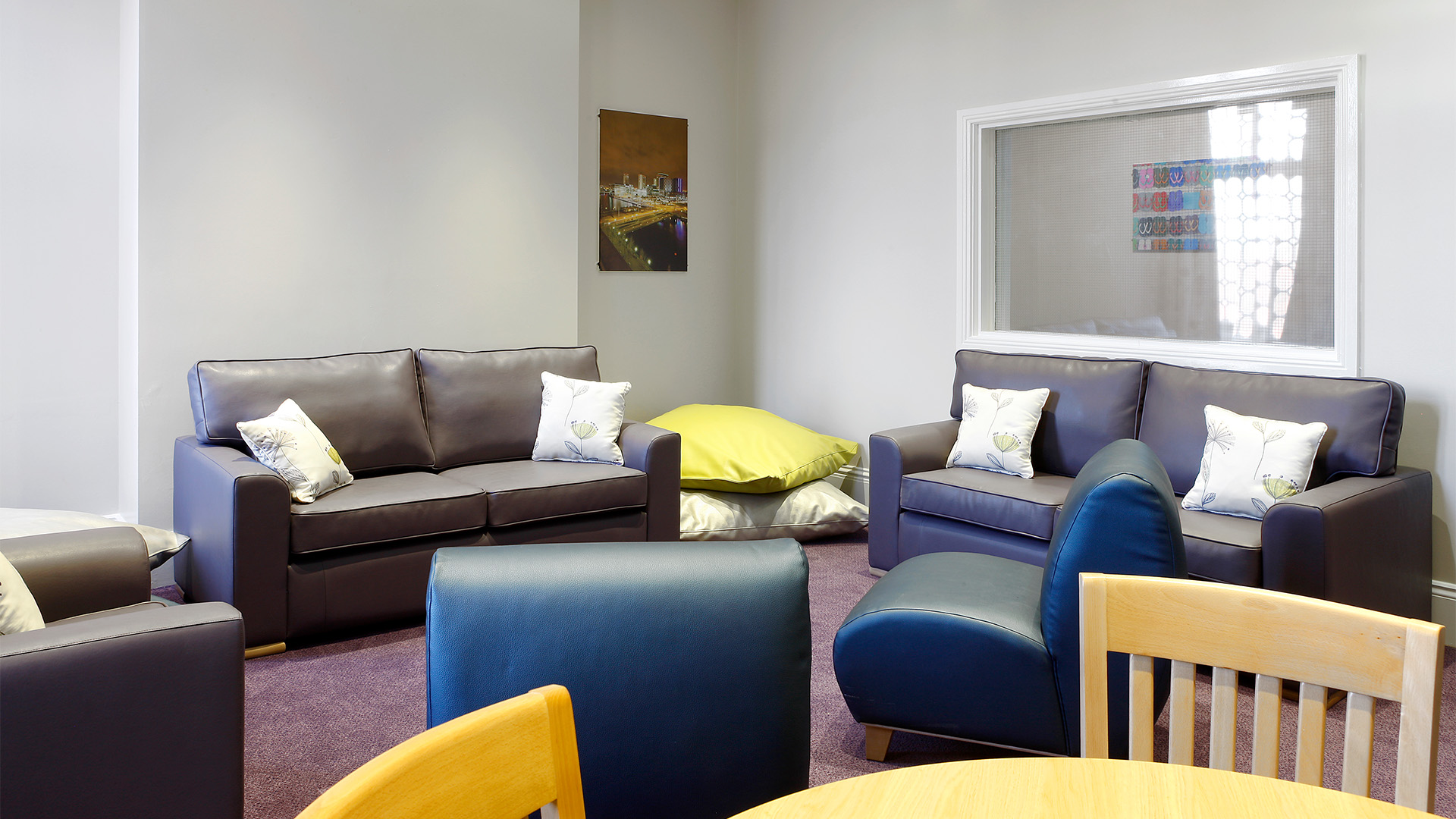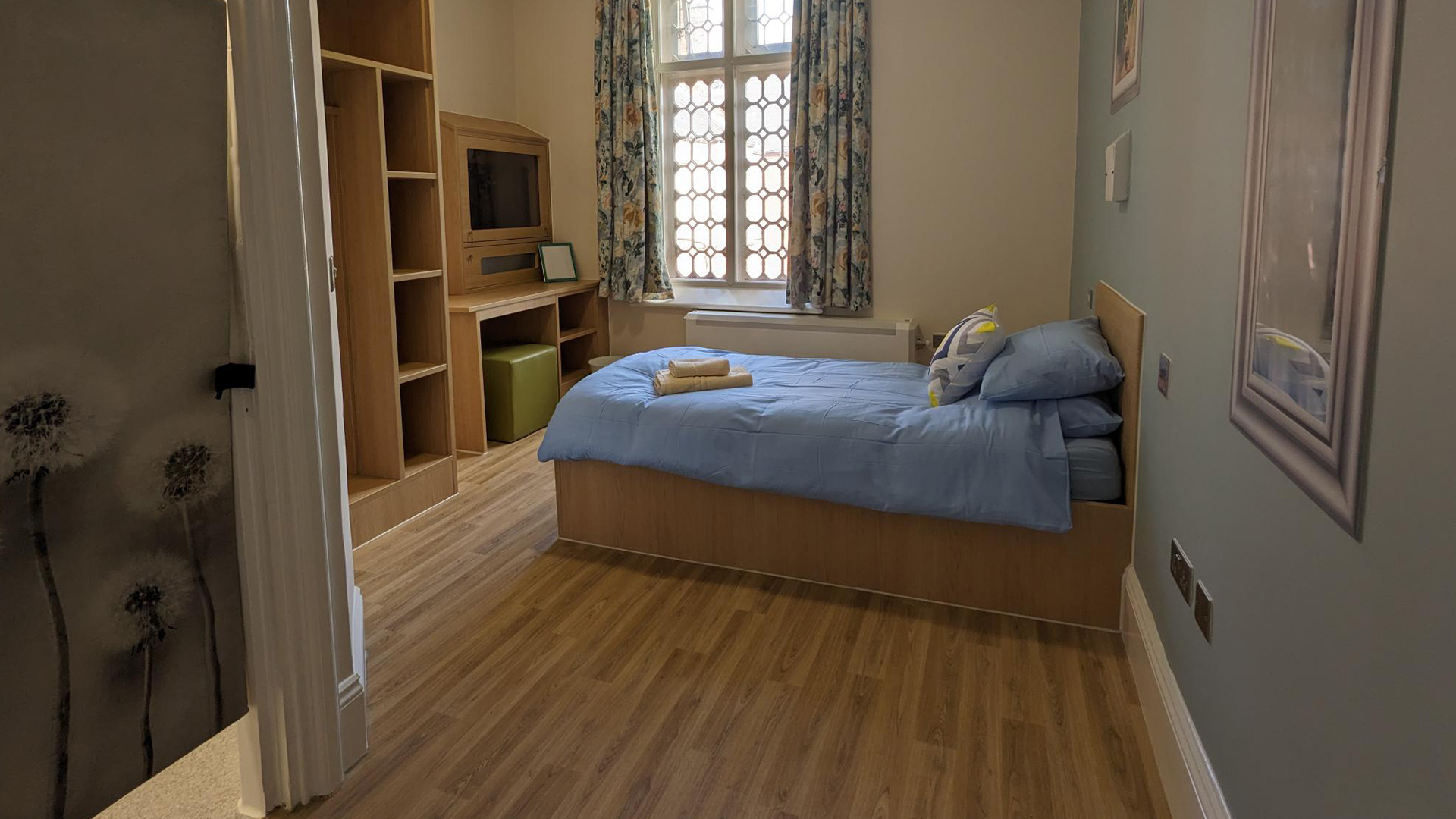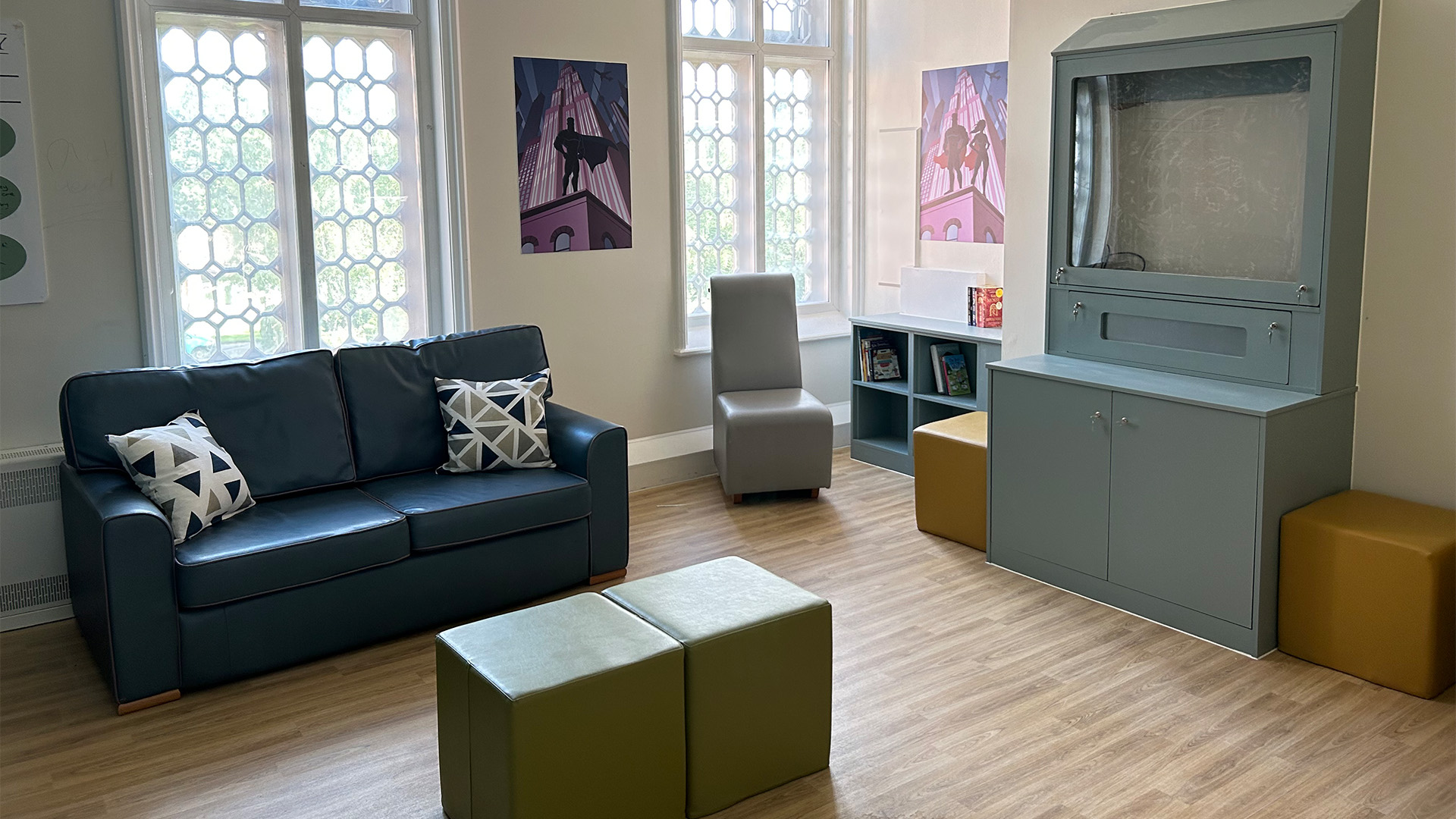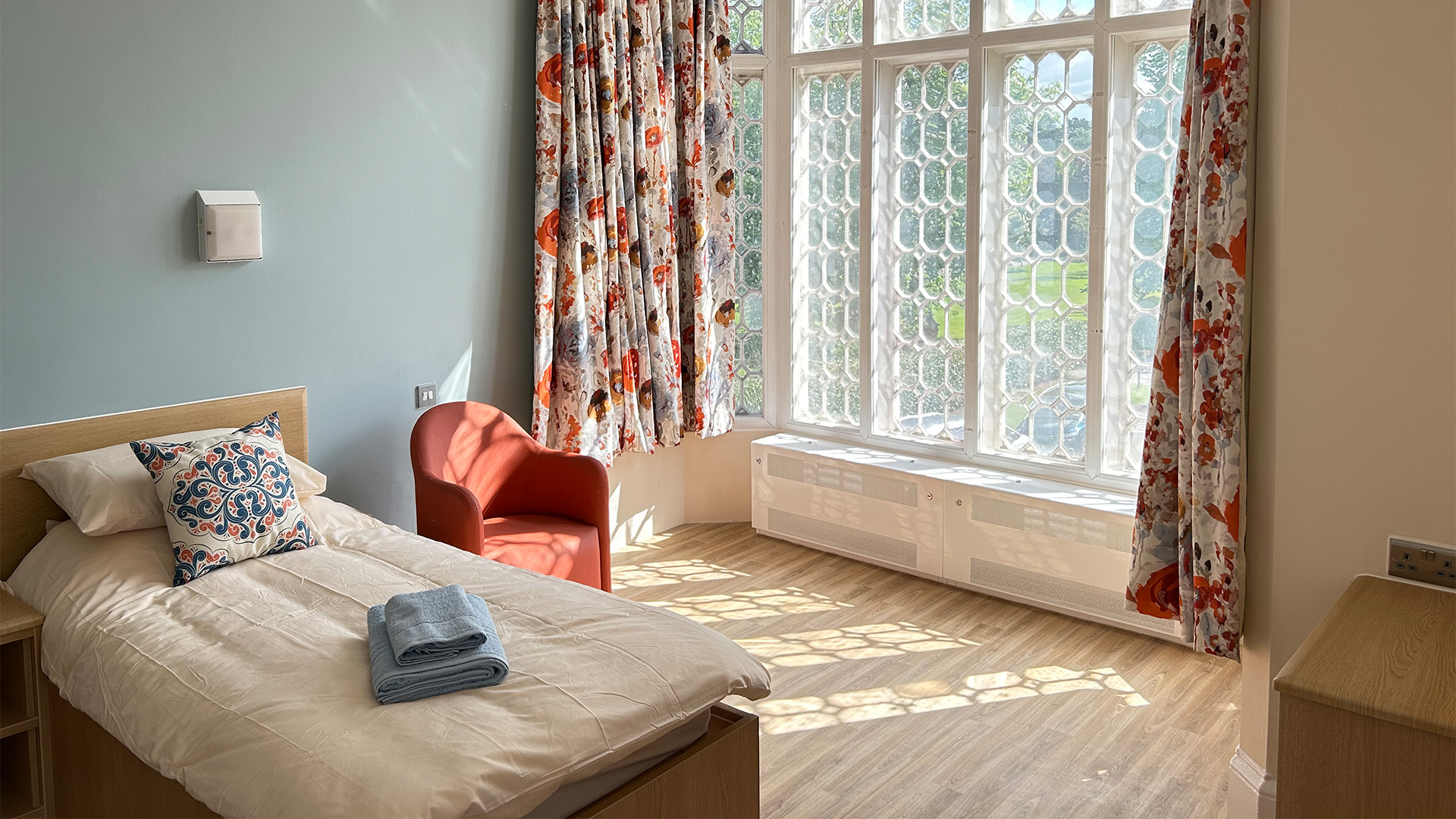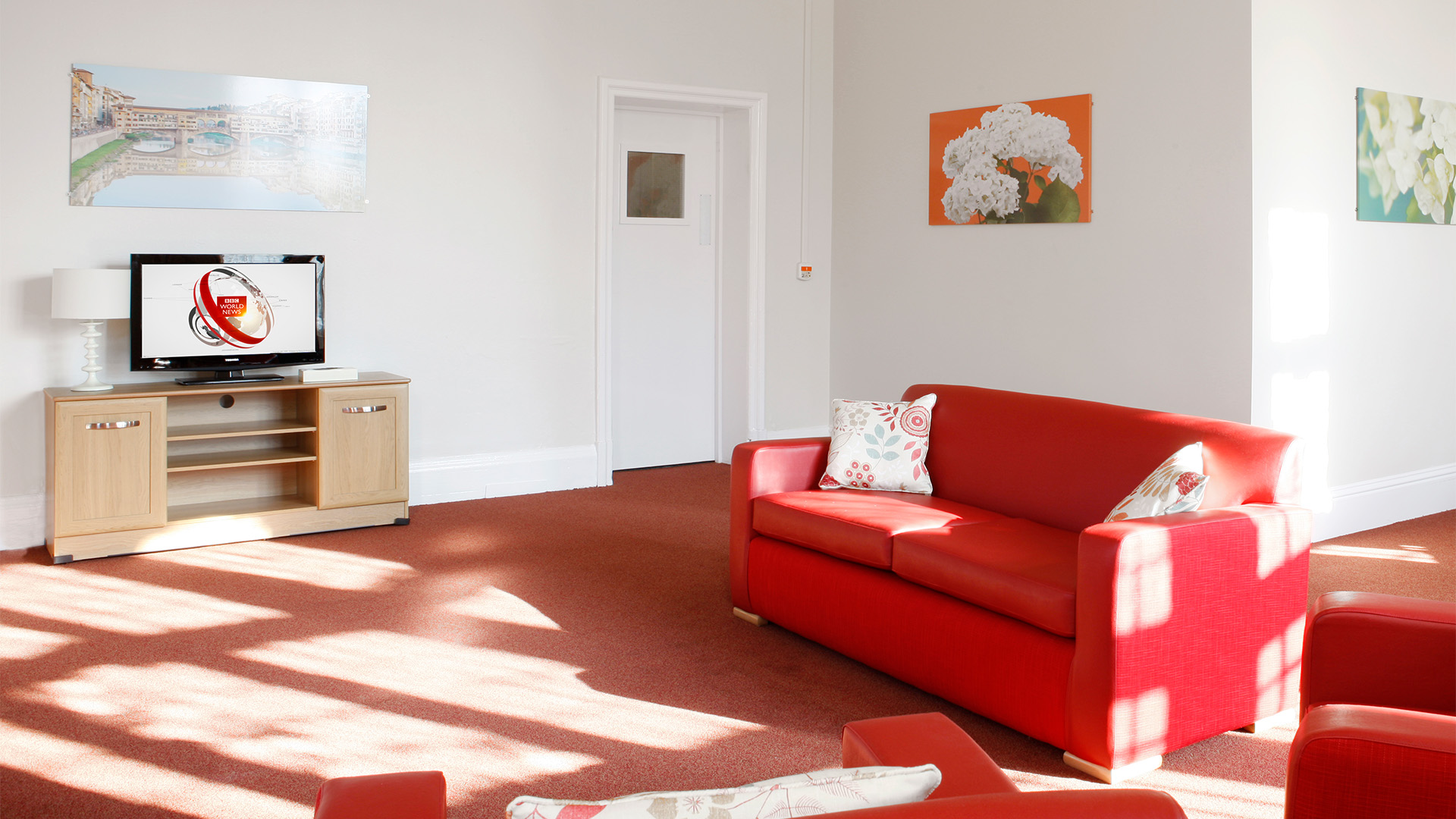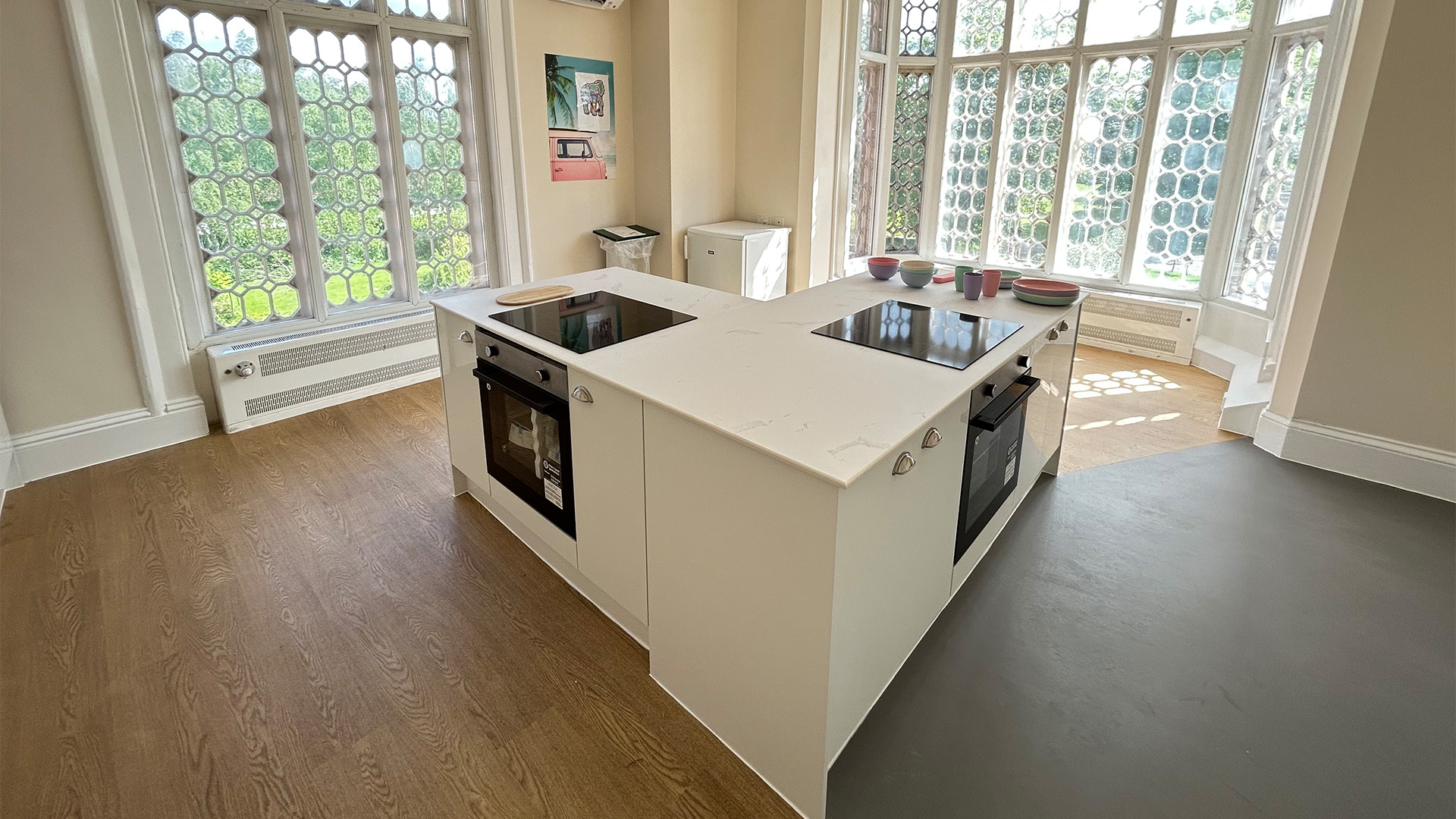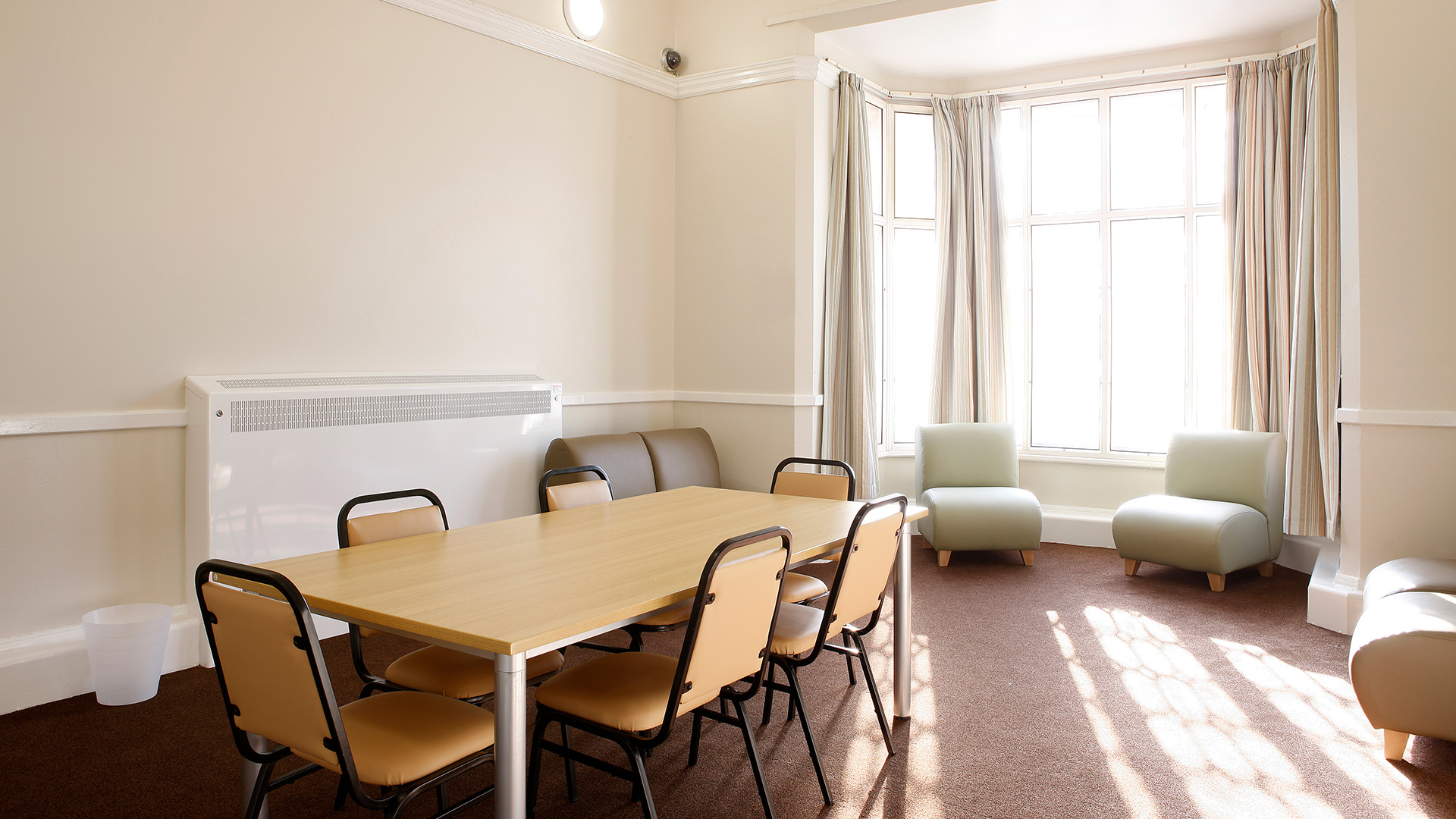About this location
Set within picturesque landscaped gardens in Stockport, Priory Hospital Cheadle Royal offers a range of comprehensive inpatient mental health services for young people and adults.
The focus of our service is to help people to live their best life in a safe and supportive environment.
Services at a glance
Contact us
Click here to enable this content
Services
Our comprehensive rehabilitation services provide support for people with complex mental health needs. We align our services with the recommendations of the Joint Commissioning Panel for Mental Health (JCPMH), ensuring our patients are given the highest quality care to enable an appropriate transition back home or into community services, wherever possible.
Within our rehabilitation and recovery (R&R) services, we offer the following specialisms:
- Personality disorder
- Community focused rehabilitation
- High dependency rehabilitation
- Severe and enduring mental health
- Bespoke therapeutic placements
Ward break down
- Fern – 10-bedded personality disorder ward for females
- Elmswood View - 1 bed BTP (LD, ASD, CAMHS)
Conditions treated
We can support people with a primary diagnosis of:
- Acute mental health conditions
- Depression
- Anxiety
- PTSD
- Schizophrenia
- A personality disorder
We are also able to support patients detained under the Mental Health Act, and those with the following challenges, alongside their primary diagnosis:
- A mild to moderate learning disability
- Addiction
- Behaviours that challenge
- Forensic history
Treatment approaches
At Cheadle Royal, we offer an individualised, person-centred approach for all of our patients. We have achieved a number of accreditations including Quality Network for inpatient CAMHS (QNIC), Quality network for eating disorders (QED) and National association of psychiatric intensive care units (NAPICU).
Our hospital offers rehabilitation and recovery services for males with severe and enduring mental health conditions, and females with emotionally unstable personality disorder (EUPD), offering a full dialectical behaviour therapy (DBT) programme, combined with psychiatry.
Our assessment and treatment options are overseen by a full and diverse MDT.
We offer:
- Medication reviews and interventions
- Psychological intervention
- Management of self-harm and hostility
- CBT
- Management of physical health care needs
- Crisis planning and relapse prevention
- Anxiety management
- Practical help with basics of daily living skills
- Problem solving
People within our service tend to stay with us on a medium-term basis, usually around 18 months, however this is dependent on the needs of the individual.
Our team
- Hospital director
- Deputy hospital director
- Director of clinical services
- Medical director
- Associate medical director
- Associate director of clinical services
- Clinical nurse specialist
- Physical healthcare nurse
- Phlebotomist
- Nurses
- Nursing support staff
- Consultant psychiatrists
- Speciality grade doctors
- Psychologists
- Psychological therapists
- OT therapists
- OT assistants
- Social workers
- Head of facilities
- Chefs
- Catering assistants
Therapeutic and community-based activities
We offer a range of therapeutic and community-based activities as part of a full treatment programme. We want to support people to become more confident and independent, preparing them to move through their treatment pathway towards community living.
Our therapeutic and community-based activities include:
- Cooking/baking
- Trips into the community
- Physical activity and exercise
- Cognitive skills training
- Current affairs discussion groups
- Art, music and groups for self-expression
- Signposting and support into education and work
- Support into religious practices
- Men’s/women’s health and personal care
- Mindfulness
- Yoga
- Horse riding
- Pet therapy
- Walking groups
- Gardening and horticulture
Our facilities and environment
Our bedrooms
All of our bedrooms are single-occupancy, have an en-suite bathroom and offer views of the grounds. Patients are encouraged to personalise their bedrooms while they are staying with us. Fern Unit and our BTP also have safe rooms.
We also provide:
Exclusion profile
Pathways
Priory’s network of high-quality facilities enables us to offer joined-up care pathways with our dedicated residential services. We offer programmes which integrate healthcare treatment and therapy, which are tailored according to individual needs, in an appropriate setting. Our strength is that we can provide a seamless transition for the individual as they progress between higher and lower dependency services.
We work closely with provider trusts and local systems to ensure that people stay with us for the least time possible and are supported to move back into the community or to their own home where possible.
We provide a step-down service to people who no longer require admission to acute wards or psychiatric intensive care units (PICUs), but are unable to be discharged into the community for a variety of reasons. This might include:
- Lack of access to suitable discharge placement
- Further assessment being required before discharge placement is identified
- A small amount of additional intervention is required but a long-term rehabilitation admission is not required
- The patient is waiting for a specialist rehabilitation admission
- The patient is waiting for allocation of additional professionals
This service is delivered within our R&R wards and aims to provide inpatient care closer to home, within a therapeutic and enabling environment, whilst freeing up acute beds for those who need them most.
Ward break down
- Elmswood House – 11-bedded community rehab ward for males
When a referral is received, our team aims to complete a face-to-face pre-admission assessment within five working days. People are usually assessed by at least two professionals and we identify goals for admission immediately.
Conditions treated
We are able to support people with:
- Severe and enduring mental health needs
- Schizophrenia
- Schizoaffective disorder
- Bipolar disorder
- Psychosis
- Depression
- Anxiety
- Personality disorders
- Neurodevelopmental disorders, including autism, attention deficit hyperactivity disorder (ADHD) and a mild learning disability
Treatment approaches
Priory Hospital Cheadle Royal offers an individualised, person-centred approach to all of our patients. In collaboration with patients and families, our ultimate aim is to support people to better understand their needs and goals, and to develop confidence and independence, in managing their health and wellbeing.
The purpose of an admission to our community reablement service is to support people to resolve the barriers to discharge within the least restrictive setting.
The ethos of the hospital is one of positive risk taking and an acceptance that ‘practice makes perfect’. This allows people to try out their new skills in a non-judgemental environment and learn to adapt when things don’t go according to plan.
We maintain close links with families, community teams and commissioners, involving them in the recovery journeys of those that we care for.
Our therapy programme uses a range of evidence-based assessments and interventions in both one-to-one and group settings. We evaluate our programme every eight weeks to ensure we are responding to the changing needs of the people we care. Lack of motivation and insight are specifically identified as a focus for therapy rather than a barrier to it.
Our community reablement patients have access to our full therapy programme if required, however length of stay is considerably shorter as their stay is focussed on resolving barriers to admission rather than because patients need intensive intervention.
We are able to offer additional assessments to those on the community reablement programme, to support onward care planning. This can include:
- ASD assessment (ADOS-2 and ADI-R)
- ADHD assessment (CAARS & DIVA 5)
- Cognitive assessment (WAIS-IV)
- Test of premorbid functioning (TOPF)
- The Minnesota Multiphasic Personality Inventory (MMPI) • Trauma assessment (TSI-2)
- Sensory profile
Outcome measures
We use a variety of outcome measures, which give us a balance of patient and clinician views. These tools are repeated at regular intervals to demonstrate progress that has been made.
Our team
We have a full SMT, MDT, and support services team, which consist of:
- Hospital director
- Director of clinical services
- Head of facilities
- Medical director
- Ward managers / deputy
- Senior / staff nurses
- Healthcare assistants
- Consultant psychiatrists
- Junior doctor
- Consultant clinical psychologist
- Assistant psychologist and trainee psychologists
- Occupational therapist
- Occupational therapy assistants
- Fitness instructor
- General advocacy and independent mental health advocate (IMHA) services
- Local GP services
- Access to a dietician
- Catering team
- Housekeeping team
- Maintenance team
- Administrators
We also provide specialist staff training, including:
- PBS training
- The National Autistic Society training
- Bi-weekly local educational sessions
- Weekly complex case discussions
- Monthly reflective practice sessions
- Monthly clinical supervision
Our facilities and environment
We believe that the environment in which treatment takes place is just as important as the treatment itself, when it comes to supporting our patients. Our large grounds provide a safe, empowering and validating space for people to recover from their mental health difficulties. On the wards, we provide:
Our bedrooms
All of our bedrooms are single occupancy and have en-suite bathrooms. Patients are encouraged to personalise their bedrooms while they are staying with us and they are able to use TVs and games consoles in their rooms if they wish. We provide:
Exclusion profile
• People under the age of 18
• People with a primary diagnosis of a learning disability
• People with a primary diagnosis of substance misuse
Pathways
Priory’s network of high quality facilities enables us to offer joined-up care pathways with our dedicated residential and supported living services in Priory Adult Care. We offer programmes which integrate healthcare treatment and therapy, which are tailored according to individual needs, in an appropriate setting.
Our strength is that we can provide a seamless transition for the individual as they progress between higher and lower dependency services.
Priory’s acute and PICU services aim to allow more people to be treated closer to home and we support the NHS to repatriate out-of-area patients back to local areas.
We offer round-the-clock assistance in times of emergencies and our specialist inpatient acute teams are committed to providing the highest quality of care, supporting patients with a wide range of mental health conditions in safe and highly therapeutic environments.
Ward break down
- Maple – 15-bedded ward for males and females
- Alder – 14-bedded ward for males and females
- Evergreen - 15 beds
- Redwood - 12-bedded ward for males and females
Conditions treated
We can support people with a primary diagnosis of:
- Acute mental health conditions
- Depression
- Anxiety
- Post-traumatic stress disorder (PTSD)
- Schizophrenia
- A personality disorder
Treatment approaches
At Cheadle Royal, we offer an individualised, person-centred approach for all of our patients. Our assessment and treatment options are overseen by a full and diverse multidisciplinary team (MDT).
We offer:
- Medication reviews and interventions
- Psychological intervention
- Management of self-harm and hostility
- Cognitive behavioural therapy (CBT)
- Management of physical health care needs
- Crisis planning and relapse prevention
- Anxiety management
- Practical help with basics of daily living skills
- Problem solving
People within our service tend to stay with us on a medium-term basis, usually around 18 months but it is dependent on the needs of the individual.
Our team
- Hospital director
- Deputy hospital director
- Director of clinical services
- Medical director
- Associate medical director
- Associate director of clinical services
- Clinical nurse specialist
- Physical healthcare nurse
- Phlebotomist
- Nurses
- Nursing support staff
- Consultant psychiatrists
- Speciality grade doctors
- Psychologists
- Psychological therapists
- Occupational therapists (OT)
- OT assistants
- Social workers
- Head of facilities
- Chefs
- Catering assistants
Therapeutic and community-based activities
We offer a range of therapeutic and community-based activities as part of a full treatment programme. We want to support people to become more confident and independent, preparing them to move through their treatment pathway towards community living.
Our therapeutic and community-based activities include:
- Cooking/baking
- Trips into the community
- Physical activity and exercise
- Cognitive skills training
- Current affairs discussion groups
- Art, music and groups for self-expression
- Signposting and support into education and work
- Support into religious practices
- Men’s/women’s health and personal care
- Mindfulness
- Yoga
- Horse riding
- Pet therapy
- Walking groups
- Gardening and horticulture
Our facilities and environment
Our bedrooms
Exclusion profile
- People under the age of 18
Pathways
Priory’s network of high-quality facilities enables us to offer joined-up care pathways with our dedicated residential services. We offer programmes which integrate healthcare treatment and therapy, which are tailored according to individual needs, in an appropriate setting. Our strength is that we can provide a seamless transition for the individual as they progress between higher and lower dependency services.
We work closely with provider trusts and local systems to ensure that people stay with us for the least time possible, and can be supported to move back into the community or to their own home.
Our PICU services have been designed to support people in a severe phase of their condition, who cannot be managed in acute services. Our dedicated PICU services place us at the forefront of specialised intensive care, and our highly trained teams can support people with complex needs and behaviours that may challenge, along with co-existing issues (such as substance misuse).
Ward break down
- Willows – 10-bedded ward for males
- Featherstone – 10-bedded ward for males
Conditions treated
Our PICU services support people with a primary diagnosis of an acute mental health condition, including:
- Depression
- Anxiety
- Post-traumatic stress disorder (PTSD)
- Schizophrenia
- A personality disorder
We can also support those detained under the Mental Health Act.
Treatment approaches
At Cheadle Royal, we offer an individualised, person-centred approach for all of our patients. We have achieved the National Association of Psychiatric Intensive Care Units (NAPICU) accreditation.
Our assessment and treatment options are overseen by a full and diverse multidisciplinary team (MDT).
We offer a variety of psychological therapies to support our patients in their recovery. People within our service tend to stay with us on a short-term basis, usually around three to six months, although this will depend on the individual’s needs.
Our team
- Nurses
- Healthcare assistants
- Consultant psychiatrists
- Speciality grade doctors
- Psychologists
- Psychological therapists
- OT
- OT assistants
- Social workers
Therapeutic and community-based activities
We offer a range of therapeutic and community-based activities as part of a full treatment programme. We want to support people to become more confident and independent, preparing them to move through their treatment pathway towards community living.
Our therapeutic and community-based activities include:
- Cooking/baking
- Trips into the community
- Physical activity and exercise
- Cognitive skills training
- Current affairs discussion groups
- Art, music and groups for self-expression
- Signposting and support into education and work
- Support into religious practices
- Men’s/women’s health and personal care
- Mindfulness
- Yoga
- Horse riding
- Pet therapy
- Walking groups
- Gardening and horticulture
Our facilities and environment
Our bedrooms
Patients are encouraged to personalise their bedrooms while they are staying with us. We provide:
Exclusion profile
Pathways
Priory’s network of high-quality facilities enables us to offer joined-up care pathways with our dedicated residential services. We offer programmes which integrate healthcare treatment and therapy, which are tailored according to individual needs, in an appropriate setting. Our strength is that we can provide a seamless transition for the individual as they progress between higher and lower dependency services.
We work closely with provider trusts and local systems to ensure that people stay with us for the least time possible and are supported to move back into the community or to their own home where possible.
Through our dedicated CAMHS services, we aim to meet young people’s mental health needs safely and effectively, in the least restrictive environment, whilst maintaining their privacy, dignity, sense of self, and relationships with those close to them.
Ward break down
- Woodlands – 10-bedded low secure ward for young males and females
Conditions treated
We can support people with a primary diagnosis of:
- Attachment difficulties
- Emotional dysregulation
- Psychosis
- Anxiety
- Depressive disorders
- Self-harm/suicidality
We are able to support those detained under the Mental Health Act, young people who pose a high level of risk to themselves and others and individuals who are likely to abscond.
Treatment approaches
People within our service tend to stay with us on a short-term basis, usually around four to eight months, although young people on the disordered eating pathway can stay for up to six months.
Our team
- Nurses
- Healthcare assistants
- Consultant psychiatrists
- Speciality grade doctors
- Psychologists
- Psychological therapists
- OT
- OT assistants
- Social workers
- Education onsite
- CAMHS training in working with young people
- Autism spectrum training
- Human rights in CAMHS services training
- Disordered eating training
Therapeutic and community-based activities
We offer a range of therapeutic and community-based activities as part of a full treatment programme. We want to support people to become more confident and independent, preparing them to move through their treatment pathway towards community living.
Our therapeutic and community-based activities include:
- Cooking/baking
- Trips into the community
- Physical activity and exercise
- Cognitive skills training
- Current affairs discussion groups
- Art, music and groups for self-expression
- Signposting and support into education and work
- Support into religious practices
- Men’s/women’s health and personal care
- Mindfulness
- Yoga
- Horse riding
- Pet therapy
- Walking groups
- Gardening and horticulture
Our facilities and environment
Our bedrooms
All of our bedrooms are single-occupancy and have an en-suite bathroom. Patients are encouraged to personalise their bedrooms while they are staying with us. We provide:
Exclusion profile
- People above the age of 18
Pathways
Priory’s network of high-quality facilities enables us to offer joined-up care pathways with our dedicated residential services. We offer programmes which integrate healthcare treatment and therapy, which are tailored according to individual needs, in an appropriate setting. Our strength is that we can provide a seamless transition for the individual as they progress between higher and lower dependency services.
We work closely with provider trusts and local systems to ensure that people stay with us for the least time possible and are supported to move back into the community or to their own home where possible.
Education provision
As part of our CAMHS service, we also provide an Ofsted-registered independent school, North West Hospital School, which allows our residents to access a high quality education curriculum. Our priority is to provide everyone who stays with us with the care and education they need to go on to live a fulfilling and happy life.
You can contact the Head Teacher, Katie Mason, for additional information.
Priory is the UK's largest independent provider of adult eating disorder services and we pride ourselves on offering quality, personalised treatment for every person we support.
Ward break down
- Cedar – 18-bedded ward for male and females
Conditions treated
We can support people with a primary diagnosis of:
- Anorexia nervosa
- Bulimia nervosa
- Atypical eating disorder
- Binge eating disorder (BED)
- Other specified feeding or eating disorders (OSFED)
- Eating disorders not otherwise specified (EDNOS)
We are able to support people with a high physical or psychiatric risk, and complex needs, alongside their primary diagnosis. In addition, we can support informal patients or those detained under the Mental Health Act.
Treatment approaches
At Cheadle Royal, we offer an individualised, person-centred approach for all of our patients. We have achieved the Quality network for eating disorders (QED) accreditation.
Our assessment and treatment options are overseen by a full and diverse MDT.
We offer:
- Health Of The Nation Outcomes Scores (HONOS) which measures mood, anxiety, relationships and quality of life eating disorders examination (EDE) which specifically measures eating disorder symptoms
- Weekly physical health monitoring including weight and blood tests
- Nasogastric feeding if required
People within our service tend to stay with us on a medium-term basis, usually around six months, dependent on the needs of the individual.
Our team
- Nurses
- Healthcare assistants
- Consultant psychiatrists
- Speciality grade doctors
- Psychologists
- Psychological therapists
- OT
- OT assistants
- Social workers
Therapeutic and community-based activities
We offer a range of therapeutic and community-based activities as part of a full treatment programme. We want to support people to become more confident and independent, preparing them to move through their treatment pathway towards community living. Our therapeutic and community-based activities include community-based therapy.
Our facilities and environment
Our bedrooms
Exclusion profile
Pathways
Priory’s network of high-quality facilities enables us to offer joined-up care pathways with our dedicated residential services. We offer programmes which integrate healthcare treatment and therapy, which are tailored according to individual needs, in an appropriate setting. Our strength is that we can provide a seamless transition for the individual as they progress between higher and lower dependency services.
We work closely with provider trusts and local systems to ensure that people stay with us for the least time possible and are supported to move back into the community or to their own home where possible.
Information for family and friends
How do home visits work?
We help to arrange home visits and encourage family and friends to remain in contact with the patient while they’re staying with us, where appropriate.
What is your visitation policy?
We are flexible with visiting times, and they may differ depending on the patient’s timetable. We do ask that visits are organised around any planned treatment, education time, and meal times. For CAMHS and our personality disorder service, we would suggest visiting times of between 4pm and 8pm during the week, and between 9am and 8pm on weekends. For our adult services, we would suggest visiting times of between 9am and 8pm on both weekdays and weekends.
Will I be involved and kept up to date with my loved one’s care and wellbeing?
Yes, we make every effort to keep the loved ones of our residents involved in their care, where appropriate, and we promote family and friends’ involvement. Anyone is welcome to visit site before an admission as well as while the person is staying with us. We also encourage family and friends to take part in ward rounds, care programme approach (CPA) meetings and discharge planning, where this is in line with the patient’s needs and consent.
Will my loved one be able to have a phone or call me?
People staying with us may be allowed to use a mobile phone on the ward and in the community, the decision around this will be in line with any risks and the level of security of the ward. There is a phone on the ward for patients to use.
What type of things are families expected to provide, and what is provided by the hospital?
We provide all furnishings and food on-site, and encourage patients to individualise their space with their own artwork, décor and soft furnishings. Patients provide their own toiletries.
What are the bedrooms like?
All of our bedrooms are furnished, single occupancy spaces, and people are supported to personalise them to suit their needs and wishes. Most rooms at the hospital have en-suite facilities, whilst others share communal facilities.
Are external doors kept locked?
All of our external gates are locked. However, every person staying with us will be individually assessed for any risks to see what security is needed. People may have access to the ward gardens and outside areas, depending on their individual risk assessment and needs.
What do service users eat and how do meal times work?
We have our own catering team with a full menu that changes every week, supporting everyone’s diet choices. All meals are eaten on the wards, in a dining room. Meals are served at 8am to 9am for breakfast, 12pm to 1pm for lunch, and 5pm to 6pm for dinner. People can have their own choice of snacks, which they can buy either in the community or from our tuck shop. A number of patients across site also do their own shopping and cooking as part of their rehabilitation, to prepare them for life in the community.
How does laundry work?
We have laundry facilities so everyone can do their own washing and drying, free of charge. For larger items, such as bedding and towels, this is managed by our housekeeping department within our main laundry room.
Is there anything they can’t bring or have?
We have a restricted and prohibited items list, which is reviewed and updated regularly. This can be seen on request.
Are pets allowed?
Patients are allowed to have their pets come to visit. This should be pre-arranged and happens outside, in the hospital grounds. Some of our services also offer pet therapy as part of their therapeutic activities programme.
How do activities work?
All patients have an individualised activity programme, facilitated by our OT team and nurses. Activities are regularly reviewed and actively discussed during patient community meetings where we try to meet individual needs and the interests of patient groups, in a flexible and varied way.
Do service users and families have an input into the service user’s care plans?
All of the people staying with us and their families/friends are invited to attend ward rounds and CPA meetings, where the patient has given consent to involve their family. They are actively involved in care planning, supported by their primary nurse and the wider multidisciplinary team.
What are the car parking facilities?
There is plenty of free car parking on-site.
What is the smoking policy? Can service users buy cigarettes?
Cheadle Royal is a non-smoking site. Any patients with unescorted leave, or family members wishing to smoke, can do so outside of the hospital grounds.
How is treatment accessed and funded?
We don’t take referrals directly from individuals and families. Instead, the first step will be for you to reach out to the person’s GP so that they can be referred and funded through the correct NHS channel. Depending on the type of support needed, this could include local authority funding, NHS funding, joint funding between the local authority and NHS, or direct payments. Please note, referrals for NHS or local authority funded services must come from a referring organisation.
How to make a referral
Our customer service centre provides 24/7 support for NHS mental health enquiries and referrals. Our customer referral co-ordinators can support you from your first call right through to the enquiry conclusion, providing updates throughout the process. We offer 24/7 crisis referrals, fast access to bed availability and placements, and a single access point for end-to-end enquiry management.

















